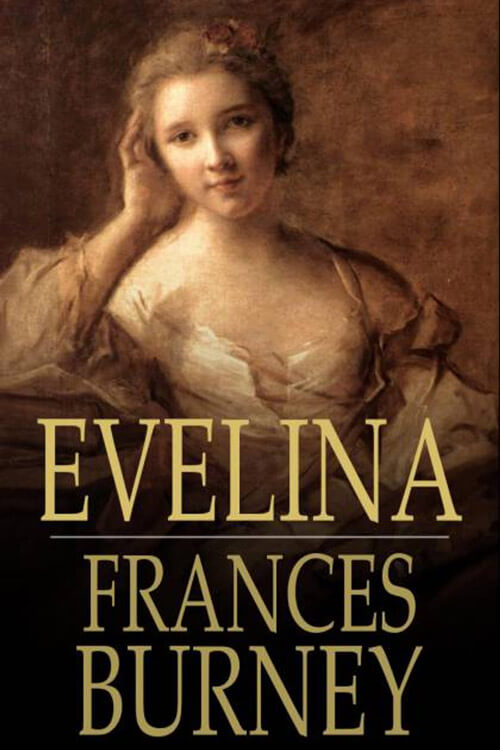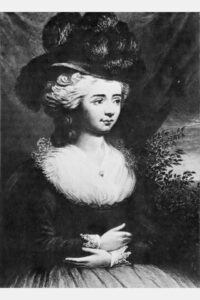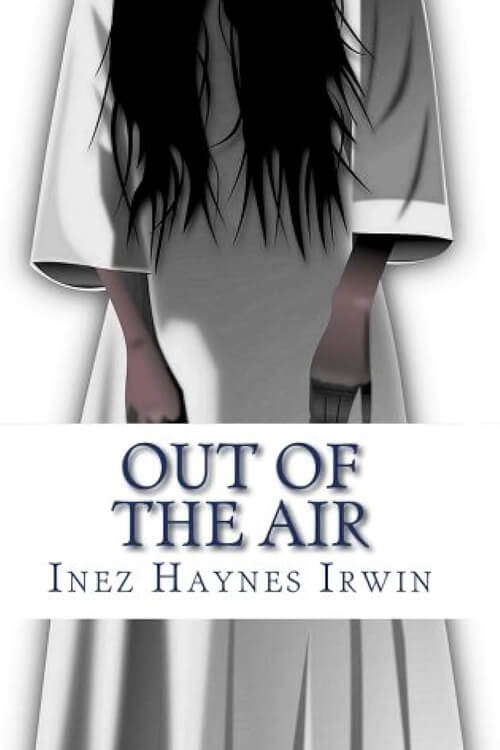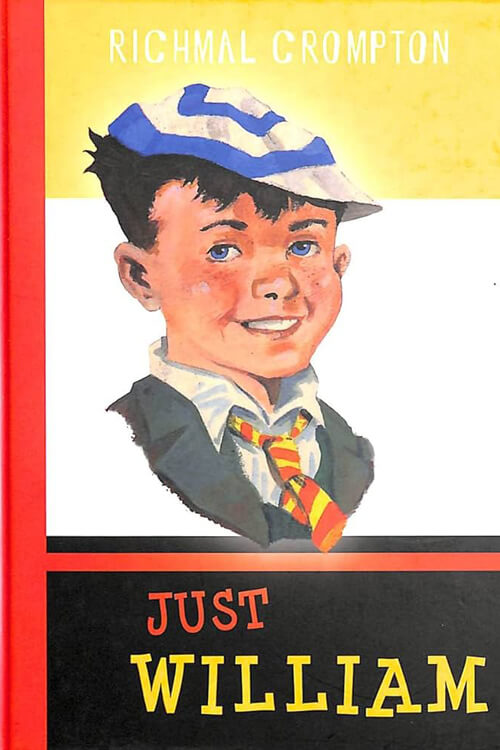
Evelina
Evelina Or, the History of a Young Lady’s Entrance into the World. The novel opens with a distressed letter from Lady Howard to her longtime acquaintance, the Reverend Arthur Villars, in which she reports that Mme (Madame) Duval, the grandmother of Villars’ ward, Evelina Anville, intends to visit England to renew her acquaintance with her granddaughter Evelina. Eighteen years earlier, Mme Duval had broken off her relationship with her daughter Caroline, Evelina’s mother, but never knew of Evelina’s birth or even existence until Evelina was in her late teens. Upon this discovery, Mme Duval desires to reclaim Evelina and whisk her away to France as her closest blood relation. Reverend Villars fears Mme Duval’s influence could lead Evelina to a fate similar to that of her mother, Caroline, who secretly wedded Sir John Belmont, a libertine who afterwards denied the marriage. To keep Evelina from Mme Duval, the Reverend lets her visit Howard Grove, Lady Howard’s home, on an extended holiday. While she is there, the family learns that Lady Howard’s son-in-law, naval officer Captain Mirvan, is returning to England after a seven-year absence.
Desperate to join the Mirvans on their trip to London, Evelina entreats her guardian to let her attend with them, promising that the visit will last only a few weeks. Villars reluctantly consents. In London, Evelina’s beauty and ambiguous social status attract unwanted attention and unkind speculation. Ignorant of the conventions and behaviours of 18th-century London society, she makes a series of humiliating (but humorous) faux pas that further expose her to social ridicule. She soon earns the attention of two gentlemen: Lord Orville, a handsome and highly eligible peer and pattern-card of modest, becoming behaviour, and Sir Clement Willoughby, a baronet with duplicitous intentions. Evelina’s untimely reunion in London with her grandmother and the Branghtons, her long-unknown extended family, along with the embarrassment their boorish, social-climbing antics cause, soon convince Evelina that Lord Orville is entirely out of reach. The Mirvans finally return to the country, taking Evelina and Mme Duval.
Spurred by Evelina’s greedy cousins, Mme Duval concocts a plan to sue Sir John Belmont, Evelina’s father, and force him to recognize his daughter’s claim to his estate in court. Reverend Villars is displeased, and they decide against a lawsuit, but Lady Howard still writes to Sir John Belmont, who responds unfavourably. He does not believe it possible for Evelina to be his daughter, as he already has a young lady who is his supposed daughter (who, unbeknownst to him, is illegitimate), and therefore assumes Mme Duval to be trying to dupe him for his money. Mme Duval is furious and threatens to rush Evelina back to Paris to pursue the lawsuit. A second compromise sees Evelina return to London with her grandmother, where she is forced to spend time with her ill-bred Branghton cousins and their rowdy friends. Still, she is distracted by Mr. Macartney, a melancholy and direly poor Scottish poet. Finding him with a pair of pistols, she supposed him to be considering suicide and bids him to look to his salvation; later, he informs her that he has been contemplating not only self-destruction but more highway robbery. He is in dreadful financial straits and is engaged in tracing his obscure parentage, as well as recovering from his mother’s sudden death and the discovery that his beloved is his sister.
Evelina charitably gives him her purse. Otherwise, her time with the Branghtons is uniformly mortifying: during her visit to the Marylebone pleasure garden, for instance, she is attacked by a drunken sailor and accosted by several rowdy men before being rescued by prostitutes—and in this humiliating company, she meets Lord Orville again. Sure that he can never respect her now, she is stunned when he seeks her out in London’s unfashionable section and seems interested in renewing their acquaintance. When an insulting and brash letter supposedly from Lord Orville devastates her and makes her believe she misperceived him, she returns home to Berry Hill and falls ill.
Read or download Book
Frances Burney
Frances Burney (13 June 1752 – 6 January 1840), also known as Fanny Burney and later Madame d’Arblay, was an English satirical novelist, diarist and playwright.
Biography
In 1786–1790, she held the “Keeper of the Robes” post to Charlotte of Mecklenburg-Strelitz, George III’s queen. In 1793, aged 41, she married a French exile, General Alexandre d’Arblay. After a long writing career and wartime travels that stranded her in France for over a decade, she settled in Bath, England, where she died on 6 January 1840. The first of her four novels, Evelina (1778), was the most successful and remains her most highly regarded. Most of her plays were not performed in her lifetime. She wrote a memoir of her father (1832) and many letters and journals that have been gradually published since 1889. Frances Burney was a novelist, diarist, and playwright. She wrote four novels, eight plays, one biography, and twenty-five volumes of journals and letters. She has gained critical respect in her own right, but she foreshadowed such novelists of manners with a satirical bent as Jane Austen and William Makepeace Thackeray.
She published her first novel, Evelina, anonymously in 1778. Burney feared that her father would find what she called her “scribblings”. When she published Evelina anonymously, she only told her siblings and two trusted aunts. Her closest sister, Susanna, helped with the cover-up. Eventually, her father read the novel and guessed Burney was its author. News of her identity spread. The story immediately brought Burney fame with its unique narrative and comic strengths. She followed it with Cecilia in 1782, Camilla in 1796, and The Wanderer in 1814. Burney’s novels explore the lives of English aristocrats and satirize their social pretensions and personal foibles, with an eye to more significant questions such as the politics of female identity. With one exception, Burney never succeeded in having her plays performed, mainly due to objections from her father, who thought that publicity from such an effort would damage her reputation. The exception was Edwy and Elgiva, which unfortunately was not well received by the public and closed after the first night’s performance despite having Sarah Siddons in the cast. Although her novels were hugely popular during her lifetime, Burney’s reputation as a writer of fiction suffered after her death at the hands of biographers and critics, who felt that the extensive diaries, published posthumously in 1842–1846, offered a more exciting and accurate portrait of 18th-century life.
Today, critics are returning to her novels and plays with renewed interest in her outlook on women’s social lives and struggles in a predominantly male-oriented culture. Scholars continue to value Burney’s diaries for their candid depictions of English society. Throughout her whole writing career, Burney’s talent for satirical caricature was widely acknowledged: figures such as Dr Samuel Johnson, Edmund Burke, Hester Lynch Thrale, David Garrick, and other members of the Blue Stockings Society to which she aligned herself were among her admirers. Her early novels were read and enjoyed by Jane Austen, whose own title, Pride and Prejudice, derives from Cecilia’s final pages. Thackeray is said to have drawn on the first-person account of the Battle of Waterloo recorded in her diaries while writing his Vanity Fair. Burney’s early career was strongly affected by her relations with her father and the critical attentions of a family friend, Samuel Crisp. Both encouraged her writing but used their influence to dissuade her from publishing or performing her dramatic comedies, as they saw the genre as inappropriate for a lady. Many feminist critics see her as an author whose natural talent for satire was stifled by the social pressures on female authors.[6] Burney persisted despite the setbacks. When her comedies were poorly received, she returned to novel writing and later tried her hand at tragedy. She supported herself and her family on the proceeds of her later novels, Camilla and The Wanderer.






